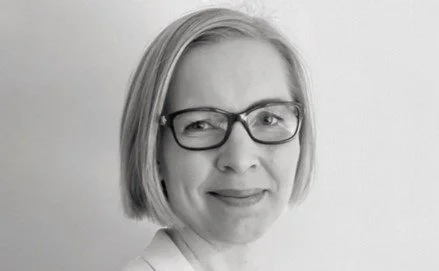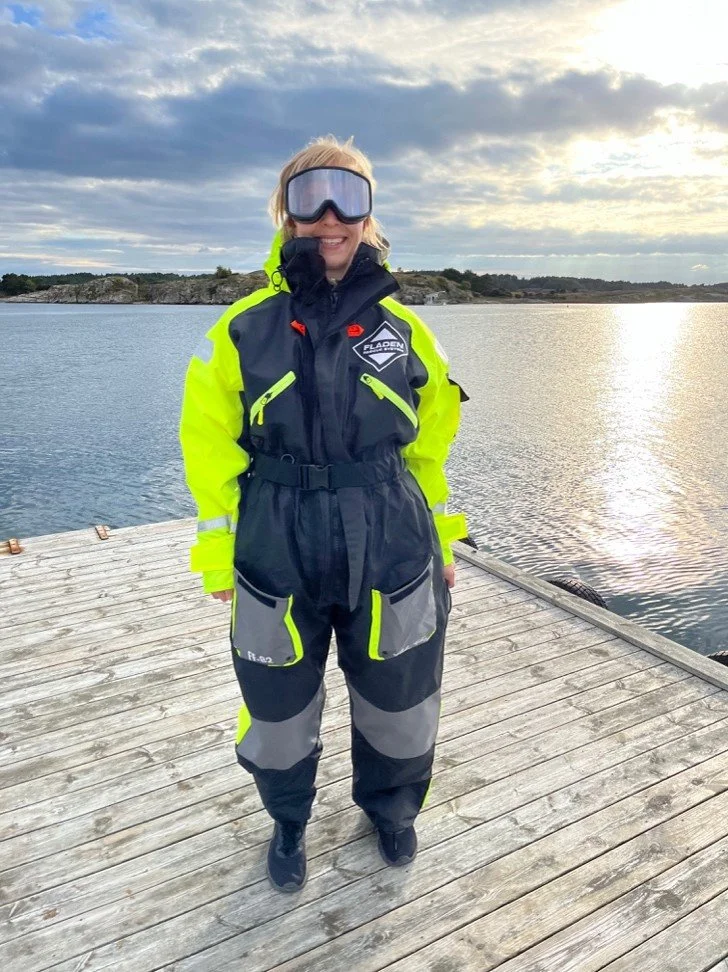Interview with Eeva Wiik
Claudia Zhang
Could you tell us about yourself and your background?
After my matriculation exam in 1999 my thoughts for the future were that I would wish to work in the corporate world in some expert role. I did not have a clear vision on what that could be, nor one subject that I would have wanted to study in particular.
I reckoned that business studies would give a good and wide basis to step into the working world and then learn more. I still feel that is how it also went. I started in the (at-the-time) Helsinki School of Economics and graduated in 2004. Finance as a major seemed something unique you could only study in a business university and which provided an academic and theoretical perspective to the economy - I still find this thinking valid.
My career path has been characterized by some level of planning and several unexpected opportunities and coincidences. Looking back, one red thread has been a regular wish for change and wanting to develop myself, and doing something that is somehow right-minded or good for the wider society. For many years, this was in roles supporting good corporate governance, and in the past years, more and more in supporting good leadership or working environment from some angle.
To be more concrete: While finalizing my studies, I heard EY was searching for risk management and governance consultants. It sounded like a great opportunity to work with several companies and get to do various tasks, and I applied. After some years in that role, I felt I wanted to build a clearer professional identity and deepen my expertise, and also feel part of a company culture and community (which you get at a consulting company, but you actually work more with clients than your own company, so it is different).
I applied for an open position and ended up as a strategy analyst at OP Financial Group. Later, hoping to have more cooperation with the business side, I got the chance to move into a credit risk manager role in the same group, and experienced a really steep learning curve into the business, underlying processes and network of people in the organization.
After a few years I started longing for a more international environment and learning to use English as the working language. I found an opportunity at Nordea in the credit area where I could use my subject matter and industry knowledge and learn more about leading international projects and teams. I also got my first team leader position - something I had hoped to try out and also enjoyed.
Five years ago, I was offered a new role at EY and moved back there (in a totally new team though, so it was not really going back to old colleagues). As a leader of one consulting business area, I could use my financial sector industry experience and for the first time in my life carry business and sales responsibility, which I felt was a really inspiring challenge. I was increasingly moving to support and guide others, and navigate within various networks to get work done. I found that really rewarding and interesting and something where I could bring more value than in my expert work in the “old” subject matter areas.
This realization initiated quite fundamental thoughts about what I want to do in the rest of my career, or at least as the next step. I even questioned how I had been spending my career and the thousands of days for the past 15 years. Thinking it over, I concluded that I had had different priorities and aspirations at different times of my life. I did quite a lot of exploration and education in my own time. I was fortunate to get opportunities to transition at EY into interim roles within HR and leadership development type of work as well as in a large change program - thanks to great sponsors and also being quite active myself and approaching various people to discuss opportunities and explain my own strengths and aspirations.
When doing this interview, I am about to move to a new role at a consulting company that specializes in human centric change management projects. I am really excited about this and looking forward to working with a large team of consultants who have quite versatile backgrounds but similar interest in the topic.
What are the most valuable things you gained from studying finance? How have you applied the knowledge and skills you acquired through your finance education?
The basic knowledge of how the macro economy and the financial markets work has been a great asset for understanding the society and the corporate world overall. In my work positions, also many details of e.g. financial instruments or various financial sector operators has been really useful. A certain academic (at the same time pragmatic), structured and analytical mindset has been valuable in approaching various situations and tasks. I have a few good friends from study times that I keep in contact with, which is invaluable.
Throughout your career, you have gained diverse perspectives on the working life. What are the key lessons or realizations that have had a profound and lasting impact on you? Additionally, could you share the highlights and most rewarding aspects of your work?
This is a really wide topic but if I try to simplify: I guess my personal realizations, so far, are that work is an important part of everyday life and can give you energy and provide ways to contribute in this society. What and how you do this can be very different for different people, and it can change over time. The most rewarding aspects of my work have been helping or improving something - e.g. by supporting a colleague or a team to find good ways of working for instance by clarifying expectations or guiding them in other ways, or providing my knowledge or views to help make well-grounded decisions. I can think of several bigger projects or smaller daily tasks with such examples.
You have a broad background of expertise, how have you continuously developed and trained yourself?
Most of the development has definitely happened within the daily work, and sometimes deliberately searching for specific or new types of tasks, roles or projects. I have also done formal training every now and then, which has typically been around the skills needed in the expert or managerial roles at hand - e.g. specific courses related to banking industry topics, regulations, professional certificates or leadership skills, or e.g. topical seminars. I have worked in companies that have offered high quality training programs, and sometimes also got to participate in external events or programs.
Recently I have become more and more fascinated about how we as individuals and groups work and interact, and how much this influences the working life and organizations e.g. achieving their goals. To understand more and also get formal qualification, I have done quite a lot of education outside work and also a 4-month study leave. In the past two years a business coaching certificate and university studies of psychology, work and organizational psychology, as well as adult education, and some other course programs. I would not have invested the time, nor money, without the personal interest.
Well-being and engagement are important aspects in the workplace, especially considering the significant changes happening in the current work environment. How does this emphasis manifest in your work environment?
All my employers have seen the importance of well-being and engagement. In practice this has shown in a combination of formal processes or activities - e.g. low-threshold mentor or psychology services, or activities to keep up employee satisfaction and employee branding to increase engagement - as well as keeping up the narrative about the importance of these matters. Despite any company level actions, I suppose well-being and engagement finally boils down to how each individual acts and shows example in the workplace.
I have luckily had really good experiences on this, as I have had supportive colleagues and leaders around me and aimed for the same from my side. It is to some extent a coincidence who you end up working with and how they have been grown up and what values they possess, but of course companies have a big role in choosing the employees with a good attitude, and cultivating the cultures and mindsets of leaders and teams.
What do you enjoy doing outside of work, and how do you maintain a work-life balance?
I enjoy a combination of activities and idle time. I like jogging and walking outdoors, reading books, occasional cultural events like theater or concerts, meeting friends and spending time with family. Recently I joined a band as a keyboard player which is super fun and has brought back the old music hobby which I used to have at school. I also do some voluntary work as a discussion support for youth on a chat platform - something I actually consider one of the most meaningful things I do.
My work-life balance has recently been good. This has not always been the case, I have had challenges probably mostly due to my own misconception of how much work should take my time or thoughts. The balance builds upon a work I enjoy and find meaningful, and taking the time and maintaining the energy to do interesting activities outside work - every day and every week, not waiting for the weekend or holidays. With experience, I have become better in prioritization and deciding when something is good enough or can be continued tomorrow.
What would be your advice for a 25-year-old Eeva?
It is fine if you do not know what you want to do in life: you can try things out and see what you enjoy and are good at.
Workplace team event: Speedboat ride
Claudia Zhang is a previous Editor-in-Chief of AFA Quarterly.


